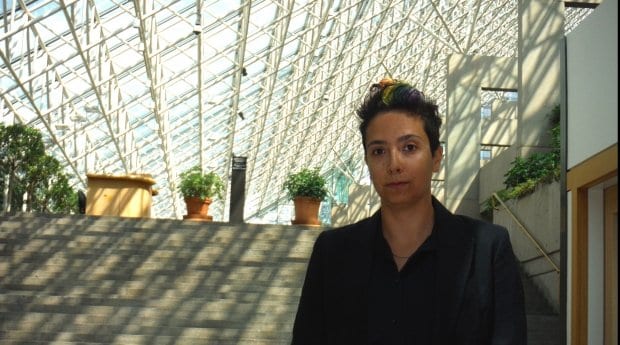Trinity Western University (TWU) and federal lawyers from the attorney general’s office echoed each other in court Aug 25, both saying BC’s law society lacks jurisdiction to judge the Christian university’s covenant.
It’s day two of TWU’s lawsuit against the BC law society for refusing to accredit the university’s future law school graduates. BC Supreme Court Chief Justice Christopher Hinkson again heard arguments that the BC law society should stick to regulating academic standards; not morals.
The BC law society initially agreed in April 2014 to accredit TWU’s future law graduates, then reversed its decision six months later after outraged members held a historic special general meeting to demand a new vote.
TWU lawyer Kevin Boonstra asked Hinkson Aug 24 to order the society to return to its initial decision approving TWU’s proposed Christian law school.
At the centre of the controversy that has played out in law societies across Canada is TWU’s community covenant, which says students should uphold Christian biblical teachings and refrain from any sex outside traditional, heterosexual marriage.
In his second day of argument before Hinkson, Boonstra said the society has no place deciding whether “Trinity Western and the Community Covenant are contrary to the public interest.”
He said the law society does not get to define how a community defines itself.
Boonstra said if the society broadly applied the same principles to lawyers, it would have to disbar a lot of people based on their personal beliefs.
Boonstra quoted Nova Scotia Supreme Court Justice Jamie Campbell’s Jan 28, 2015 ruling that the Nova Scotia law society lacked authority to deny future TWU graduates the possibility of articling in that province.
As for the covenant, Boonstra said the only charter rights being breached by the society’s rejection of the school were those of TWU’s freedom of religion, expression and association.
“The law society is not allowed to determine the belief system of Trinity Western,” he said.
“Members of the Trinity Western community have a right to gather together in the pursuit of their religious rights,” he added.
He said the law society decision penalizes prospective law students for associating with those in the same religious community.
The written submission to the court says TWU provides a supportive environment for LGBT students who want to reconcile their sexuality with their faith.
The submission says forcing TWU to change its religious character would “hinder and interfere with the ability of all members of its religious community to practice and strengthen their religious commitments.”
Federal government lawyer Darrell Roberts also told Hinkson the society acted outside its jurisdiction. “The law society did not have the power to refuse the accreditation,” he said.
He said protection of the rights of the LGBT community rests with a human rights tribunal, not the law society.
He said attempting to censor the covenant was “unreasonable.”
“We can’t regulate the beliefs of people,” he said.
Naomi Moses of OUTLaws, a group representing law students at the universities of Victoria, British Columbia and Thompson Rivers , tells Daily Xtra she finds it offensive that the federal government is spending taxpayers’ money to intervene in a case of provincial law.
Lawyers are responsible for upholding the Constitution and the Charter, she continues. “His argument about jurisdiction doesn’t hold water,” Moses says.
She says a covenant that places being queer on the same level as lying, cheating, stealing and drunkenness should not be protected.
The case is expected to continue three more days until Friday, Aug 28.

 Why you can trust Xtra
Why you can trust Xtra


